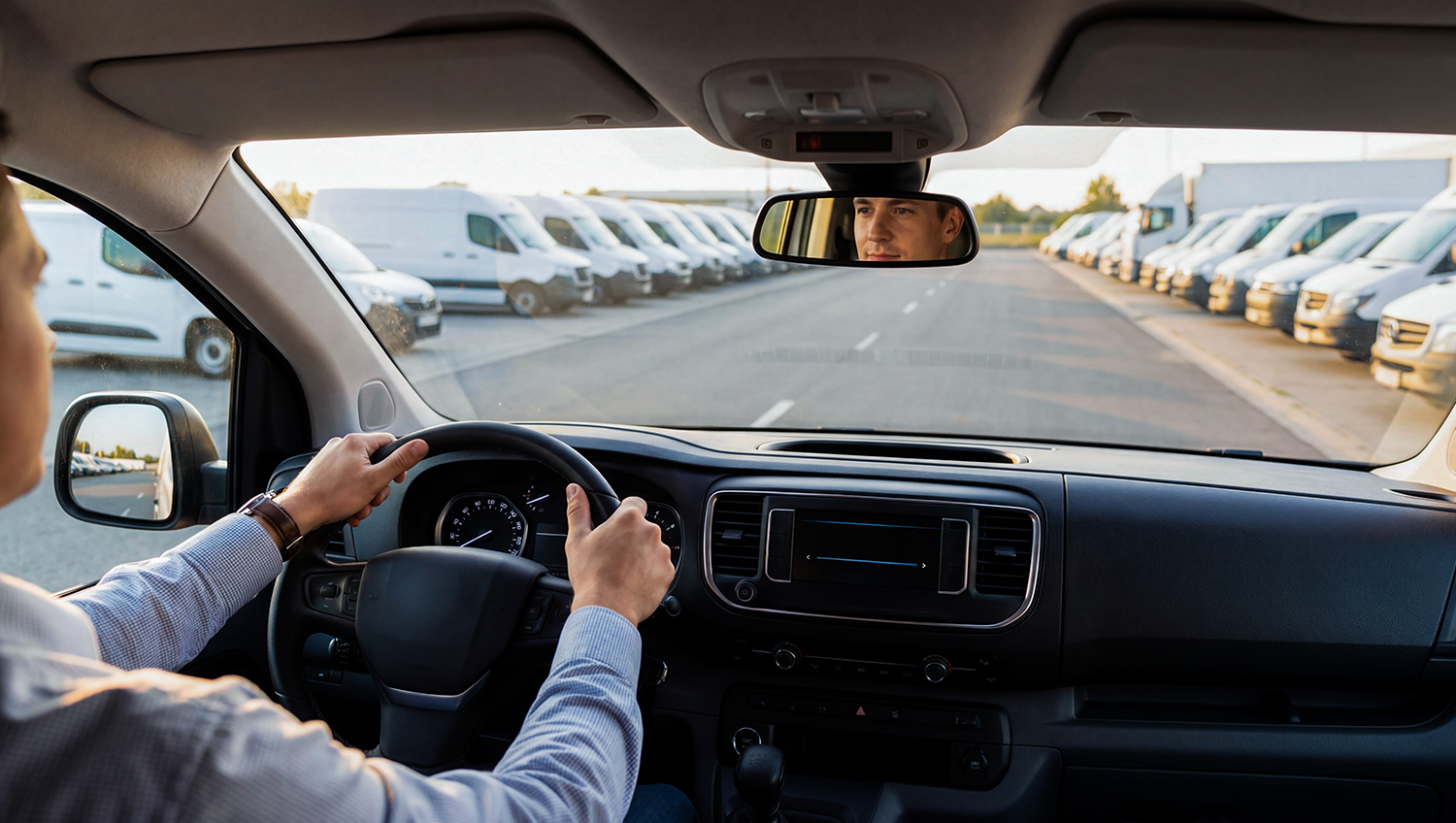Car Tracker for Parents: How to Track My Teenager’s Car
Handing over the keys to a teenager is both a milestone and a moment of anxiety for parents. The first year of driving is statistically the most dangerous, and it’s hard not to worry about where your teen is, how they’re driving, or whether they’ll make it home safely. For many families, a car tracker designed for parents has become an important tool that bridges the gap between independence and overbearing.
The right GPS tracker isn’t about spying. It’s about creating a sense of trust, supporting better habits, and giving parents peace of mind while teens learn one of life’s most important responsibilities. With modern solutions like Bouncie, parents can stay connected in real time, using data to support meaningful conversations about safety rather than hovering.
The Emotional Side of Parenting a Teen Driver
For many parents, watching their teenager pull out of the driveway alone for the first time is both a proud and terrifying moment. It represents freedom for the teen and a whole new set of worries for the parent. Will they remember to buckle up? Will they resist the temptation to check their phone? Will they know what to do if they get lost or have car trouble?
This emotional push-and-pull is what makes the formative teenage driving years so difficult for families. Parents want to encourage independence, but they also want reassurance that their child is safe. A car tracker designed with parents in mind provides that middle ground. It doesn’t eliminate all the worry, but it helps restore balance. With visibility into location and driving habits, parents can finally exhale knowing they’ll be alerted if something goes wrong.
Why Parents Are Turning to Car Trackers
Teen drivers are at a higher risk of crashes, particularly during their first year on the road. According to the CDC, the crash rate per mile driven is nearly three times higher for teens ages 16-19 compared to drivers 20 and older. That reality weighs heavily on parents, who want reassurance that their child is safe without feeling like they’re hovering.
A GPS car tracker for parents answers this concern. By providing location updates, driving behavior reports, and even crash alerts, these tools give parents confidence that they’ll know what’s happening if something goes wrong.
And unlike a decade ago, using a GPS tracker is no longer seen as taboo. Today, it’s becoming a common part of parenting, just as seat belts and airbags became standard, digital tools like car trackers are now viewed as proactive safety measures.
Statistics That Matter to Parents
The need for extra oversight isn’t just a feeling, it’s backed by data. According to the CDC:
- Teen drivers ages 16–19 are nearly three times more likely to be involved in a crash than drivers 20 and older.
- Nighttime driving is especially risky as teens are more likely to crash after 9:00pm when visibility is reduced and fatigue sets in.
- Distracted driving contributes to nearly 40% of teen crashes, with cell phone use as the leading culprit.
These numbers highlight why families are adopting technology to bridge the safety gap. A car tracker for parents can’t stop every risky decision, but it gives families the tools to intervene sooner and teach better habits before they become long-term problems.
What a Car Tracker for Parents Should Offer
Not all devices are created equal. When choosing a tracker for your family, the following features make the biggest difference:
- Real-Time Location Tracking: Know where your teen is anytime, whether they’re heading to practice or driving across town.
- Trip History & Driving Behavior Reports: Review speed, braking, and acceleration to spot risky habits.
- Geo-Zones: Get alerts if your teen enters or exits a designated area, like school, home, or a friend’s neighborhood.
- Crash Detection and Alerts: Receive immediate notifications if an impact occurs, so you can respond quickly.
- Vehicle Health Monitoring: Catch maintenance issues before they leave your teen stranded.
These features aren’t about micromanaging. They’re about giving families the tools to talk openly and prepare teens to drive responsibly.
Deeper Dive Into Features Parents Actually Use
Parents often find that certain features make the biggest difference in daily life:
- Curfew Alerts: If your teen is out later than expected, a curfew alert notifies you instantly. For families with rules about being home by a certain time, it ensures accountability without late-night texts.
- Geo-Zones Around Common Locations: Parents can set alerts for school, work, sports facilities, or even a best friend’s house. These notifications confirm that your teen arrived where they were supposed to be.
- Driving Behavior Reports: Patterns of hard braking or speeding alerts help spark specific coaching moments. Instead of vague reminders, parents can say, “Let’s talk about following distance.”
- Vehicle Health Monitoring: For many teens, car maintenance is the last thing on their minds. With alerts for battery health or engine codes, parents can handle issues proactively instead of getting a call about a breakdown miles away.
These real-world examples show how technology turns ordinary parenting stress into manageable, proactive steps.
How to Talk to Your Teen About Tracking
Introducing a car tracker as a parent requires care. Teens value independence and many worry that GPS tracking will feel like surveillance. That’s why framing matters.
Position the tracker as a safety and trust-building tool:
- Explain that it’s there to protect them, not punish them.
- Emphasize that the data helps start conversations, not arguments.
- Share that you’ll review trip history together, focusing on safety rather than blame.
With Bouncie, many parents set expectations upfront. For example: “We will check alerts together once a week, and if you’re driving responsibly, we’ll give you more freedom.” This approach makes tracking collaborative rather than controlling and helps teens take ownership of their habits.
Common Mistakes Parents Make With Car Trackers
Even with good intentions, parents can undermine the benefits of a tracker by misusing the data. Some of the most common mistakes include:
- Not discussing it openly: Teens are more likely to resist GPS tracking if it feels like a secret or a punishment.
- Over-checking data: Constantly reviewing trips and sending texts during drives creates unnecessary tension.
- Focusing only on mistakes: Highlighting every hard brake or speeding alert can turn valuable feedback into nagging.
The most effective parents strike a balance. They use the data as a teaching tool, acknowledge improvements, and celebrate safe driving. By avoiding these pitfalls, car trackers become a bridge to better communication rather than a source of conflict. Once those common traps are avoided, it becomes easier to use car trackers as a positive parenting tool.
Parenting Tips for Using a Car Tracker Effectively
Like any parenting tool, GPS tracking works best when it’s used thoughtfully. Here are some tips to get the most out of your car tracker for parents:
- Set clear expectations from day one: Agree on boundaries, like no speeding over a certain limit or staying within set zones during school nights.
- Use weekly reviews, not daily check-ins: Reviewing data once a week avoids constant pressure and gives teens a chance to improve.
- Let teens self-review their trips: Encourage them to open the app themselves and reflect on their driving habits. This builds accountability.
- Celebrate improvements: Recognize when alerts decrease or trip reports show smoother driving. Positive reinforcement makes the tracker feel supportive.
When used this way, GPS tracking becomes less about catching mistakes and more about building lifelong safe-driving skills.
How to Set Up a Car Tracker With Bouncie
- Plug in the Device: Bouncie installs in seconds using the OBD2 port, available on most vehicles built after 1996.
- Download the App: Create your account and register the vehicle.
- Customize Alerts: Choose notifications for speeding, geo-zones, curfews, and maintenance issues.
- Add Drivers: Profiles for multiple drivers make it easy to track siblings or other family members.
Once it’s set up, parents have a complete view of trips, alerts, and vehicle health right from their phone.
Benefits of Using Bouncie as a Parent
Bouncie was designed to support families looking for a reliable car tracker. For parents of teen drivers, that means:
- Reviewing trip history and spotting driving patterns at a glance
- Receiving alerts for unsafe behaviors like speeding or hard braking
- Staying informed about vehicle health, from battery warnings to engine codes
- Creating opportunities to talk with teens about real-world driving challenges
Instead of uncertainty, parents gain confidence, and teens gain a supportive tool that helps them grow into safer drivers.
True-To-Life Scenario: How One Family Used Bouncie
Consider a family with a 17-year-old just beginning to drive alone while their parents are worried about late-night trips and distractions. After installing Bouncie, they set up geo-zones for school, work, and home, along with curfew alerts.
One evening, they received a speeding notification and decided to sit down with their teen the next day to talk it through. Instead of a heated argument, they reviewed the trip together and discussed how speeding impacts reaction times. A week later, the alerts showed fewer speeding events and smoother braking, a clear sign of improvement.
For the parents, the peace of mind was invaluable. For their teen, the experience turned data into practical lessons rather than restrictions. That shift made driving feel less like surveillance and more like a partnership.
Still have questions about how car tracking works in real life? Here are answers to some of the most common concerns.
FAQs
Will my teen know the car is being tracked?
Yes. It’s best practice to be transparent, and Bouncie is designed to be visible and supportive.
Can I turn off notifications during certain hours?
Yes. You can customize alerts to avoid unnecessary pings while still staying informed.
What if they unplug the device?
Bouncie notifies you if the device is disconnected.
Can I monitor multiple teen drivers with one account?
Yes. Families with multiple vehicles or drivers can manage them all under one profile.
Does Bouncie track speed and location in real time?
Yes. Updates refresh every 15 seconds while the car is moving.
Raising Safer Drivers with Smart Technology
Parenting a teen driver is challenging, but it doesn’t have to mean constant worry. With a car tracker designed for parents, families can balance independence and oversight in a way that builds trust and confidence.
Bouncie gives parents the tools to stay connected, coach safe habits, and respond quickly when needed, all while helping teens grow into responsible drivers.
Support your teen’s journey to responsible driving today: bouncie.com/family


